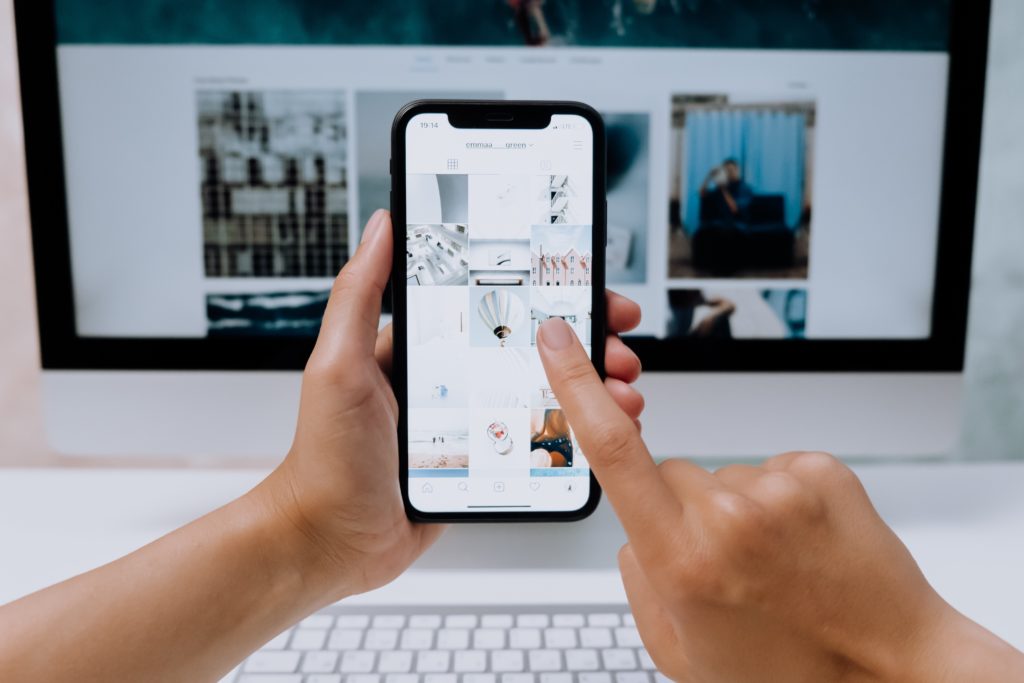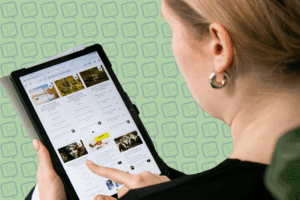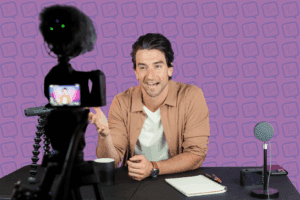Digital Marketing: The Ultimate Guide

What is Digital Marketing?
Digital marketing is defined as “the use of the Internet, mobile devices, social media, search engines, and other channels to reach consumers. (investopedia)” Today, many companies have grown to be successful by only using digital marketing and social media to promote their brand. Where the gold standard used to be having a brick and mortar storefront on a busy intersection for gaining brand recognition and new customers, the need for a physical space is now going in the opposite direction. For example, Kim Kardashian’s clothing line Skims started from the ground up on social media and it continues to be her #1 source to build brand recognition, find new customers, and grow.
Types of Digital Marketing
There are many different types of digital marketing, all with different purposes but ultimately help conquer the same goal, sell. In 2021, digital platforms are bigger and more influential than ever. Here are some of the different types of digital marketing you can consider for your digital marketing strategy:
- Social Media – social media is clearly one of the most popular ways of marketing products to potential customers. By branding yourself on social media and creating a strong presence, you can build trust with your followers and therefore provide a high level of customer service to them quickly. You can also benefit from paid advertising on different social media platforms like Instagram and Facebook.
- Email Marketing – email marketing is an older form of marketing but still very effective. Email marketing can be very versatile in that you can use it as a sales tool, or simply an efficient way to send updates to your customers. A common email marketing tactic that you have probably seen many times before is the abandoned cart emails. This strategy is proven to work because you are reminding someone that they liked a product but didn’t purchase yet, and offer the customer a very easy path to completing that purchase.
- SEO – Search Engine Optimization (SEO) is when you optimize your website, you are more likely to show up first when someone searches for a similar product or topic on google. The farther up you are, the more likely you are to be clicked on and ultimately, the more likely someone will make a purchase from your site. How does this work you might ask? Google has a bot that crawls different sites on the internet to see what each site is all about. If the site has relevant content to what they say their website is about, google will give them credit for providing quality content to the user.
- Content Marketing – Content marketing deals with loyalty above all else, loyalty earned by building a relationship with a niche audience around a specific topic that you are an expert on. The goal is to sell a personable brand first and increased product sales will come as a result. It is about building an environment that people want to spend their time in, a place that they enjoy on a fundamental level. Content marketing can come as someone’s personal blog, a YouTube Channel, or even a periodic newsletter
- Affiliate Marketing– Affiliate marketing is when you get paid for driving specific sales for a brand partner or company. In an affiliate marketing model, you would do a promotion of a specific product and you would be compensated in proportion for the amount of product you sold. The amount of compensation is determined by the economics of the specific affiliate program and vary by company and brand. Some brands pay a small percentage of sales (like 10%), some pay a high percentage (like 70%), and some pay a flat rate per sale (like $100). Long story short, everyone can benefit from digital marketing in some way or another.
Who Benefits?
- Brands – Brands are one if not the most obvious to benefit from digital marketing. In 2021, social media and online shopping are one of the more common ways for consumers to find products that they end up buying. Implementing a strong digital marketing strategy makes it so you are easy to find on the internet, and your ideal customer can find you in a quick and efficient way to make a purchase.
- Influencers – Influencers over the past few years have come to realize they can make a living off of social media through brand partnerships. By promoting brands through affiliate marketing, it not only benefits the brand but also gives them opportunities to put some cash into their pockets. This comes full circle to helping the brand because it gets more traction through social media channels, and ultimately, more people who see their product from a trusted source = more people who purchase the product.
- Consumer/Customer – Digital marketing has really leveled up the way us consumers purchase products. The days of having to get dressed, get in your car, and drive to a store to *hopefully* find what you’re looking for, are over. Now you can search on your phone and find the product you want in a matter of seconds. You can even order items that will deliver in as little as a few hours (thanks Amazon).
How InfluenceLogic Can Help “Level-Up” Your Digital Marketing Strategy
At InfluenceLogic, our team builds, grows and manages influencer, ambassador and affiliate programs from end-to-end. Our dedicated Compliance Team rigorously monitors disclosures and brand safety across the entire program. We also handle all partnership communication, contracts and payments. We take programs to new heights through performance-based paid media ads on Facebook, Instagram, Google Search, Reddit, Quora and more. When you join InfluenceLogic, you will have a CSP assigned to your account and be available to help you find the right affiliate programs, brand opportunities, and revenue opportunities in your previously posted content that you may never have known existed.
Interested in applying? You can apply her





